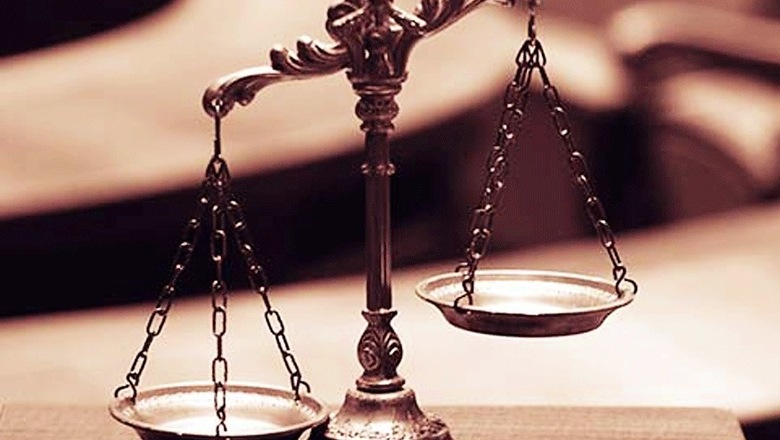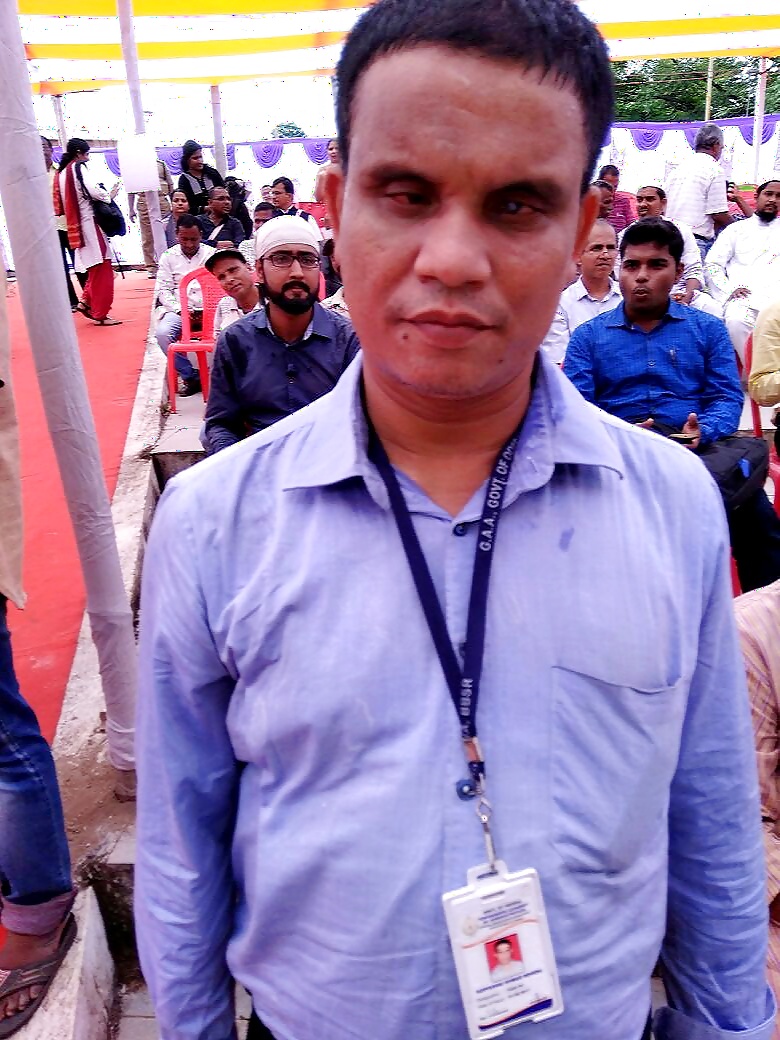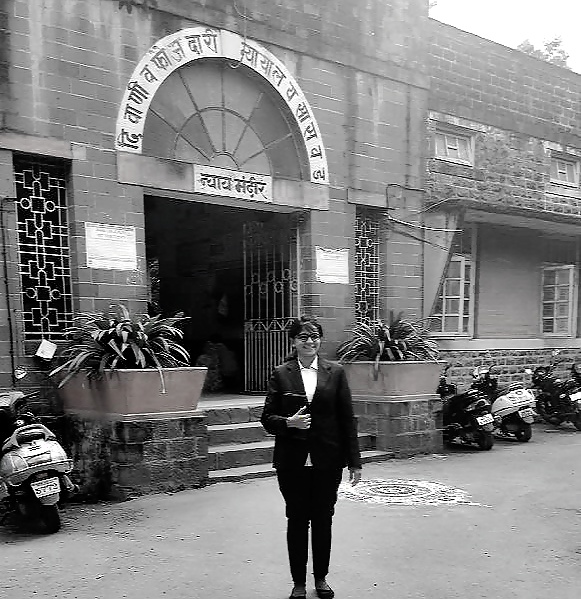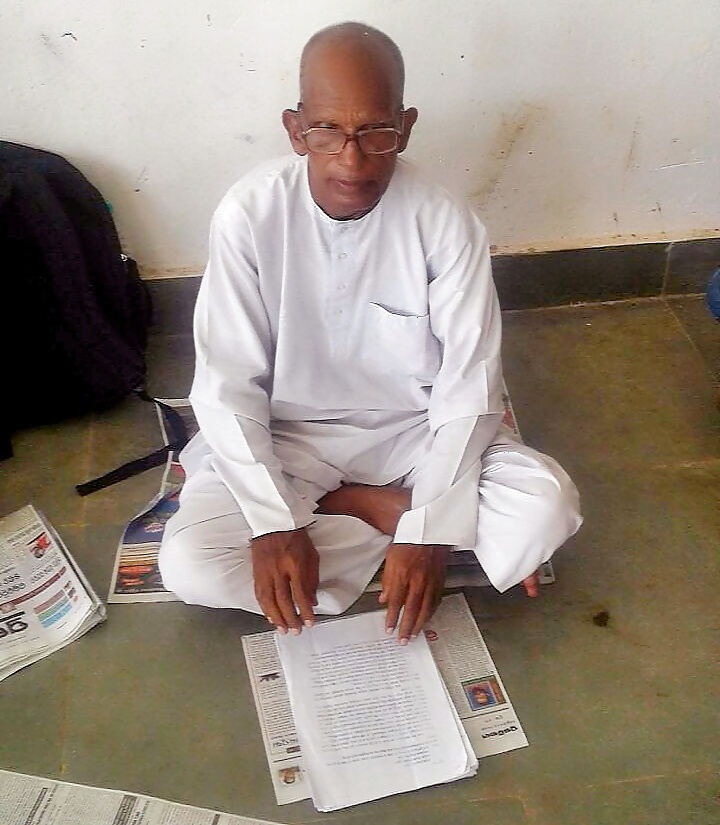
views
New Delhi: In a country as densely populated as India, and infamous for 27 million pending court cases, a strange new shift can be observed inside courtrooms – people fighting their cases themselves.
A country where to initially file a case one has to shell out anything between Rs 20,000 to a few lakhs, many Indians are choosing this less expensive alternative. Going by the visible trend, apart from financial considerations, the decision to fight a case by oneself is also a result of dissatisfaction with one’s lawyer.
People are going off the conventional route and are reading up books to represent the matter themselves, rather than being pulled down by the complex legal hierarchy.
News18 tracked down four individuals who not only fought their own cases but also overcame seemingly insurmountable hurdles.
VISION OF JUSTICE
Mahatma Gandhi once said, ‘A man is not a product of this thoughts. What he thinks he becomes’.
Perhaps this quote could not have been more applicable than in the case of a young 28-year-old man who, though being a hundred percent blind, went all guns blazing to take down not only a powerful government servant but to secure the rights of hundreds of disabled children.
This is the story of Sanyas Kumar Behera. His tryst with law started in 2001. Behera was working with Disabled people grievance cell in collaboration with District Administration of Bhadrak, an area which was prone to communal riots.

Sanyas Kumar Behera did not have the funds to hire a lawyer, neither could he find one with an understanding of his case. (Image: News18)
“In 2001, teachers of a school of disabled children informed me about case where disabled children were studying under a tree without sanitation or other facilities. This school was the only school for special children in the state. However, a retired inspector of supply became the secretary of the school and threatened the principal of the school, and took certain signatures on blank papers. He diverted the entire fund from the central government grant to his name. Later he even refused to let his house for the school which too was on rent from the government,” Behera told News18.
It was not that Behera did not think of hiring lawyers. But neither did he have funds to engage a lawyer nor did he find ones that could understand the case.
“By that time the legislation for the disabled people known as the Disabilities Act had not passed. So there was also no state rule under the PWD act. The court and administration were oblivious about the provisions of the act. I took a few children and went to the High Court. Then I did not know how to write a PIL petition and with a help of a friend I drafted the PIL and then presented it along with a few children as witnesses,” said Behera.
He still remembers the first time he entered the court in January 2001, not only he had to face all senior lawyers appearing for the Secretary but his disability too made him ‘nervous’. But with the help of his 25-year-old wife who acted as his reader, he won the case. He also ensured that the school for special children - Binapani Helen Keller School - now runs under an NGO owned by the former Chief Minister of Odisha, Nandini Satpathy.
Behera, a graduate in public administration with no law degree has argued over 200 cases. He feels that two severe problems plague our Indian courts, first, "disability is a rare matter in court. So most of the lawyers are not aware of the disability legislation prevailing in the country. The cases in relation to discrimination against disabled people rarely come to court," and the next being, "lawyers first want to protect their face value, that is their profession," which often leaves a client helpless for just.
ABUSED, SUPPRESSED BUT WINNER
When News18 caught up with this advocate who is now in her early thirties, she seemed confident and seemed to betray nothing that could show her past bruises that drew her towards the legal profession in the first place.
Aanchal Gupta hailing from Pune got married in 2006 to a business family in Nashik. She had her son in 2007 and the first few initial years went without problems. But as years passed by, her husband's drug and alcohol addiction increased and so did the regular abuse and physical violence.
“There came a point when he even started having sexual relations outside the marriage. If I objected to anything then I used to be beaten up. I was extremely scared because this had happened to me for the first time," Gupta told News18.
The only answer she received was that being a woman, she should “keep shut.” Matters worsened to an extreme in 2012 when after a round of extreme physical violence, Gupta thought she “has had enough.” What followed was a police complaint, where she was asked to “patch up” and soon she made her way back home to Pune.
And then, being cheated by a lawyer, she realised that there is no one better to fight her case than she herself.
“My father and I hired a lawyer but he cheated me. He charged us Rs 25,000 to file a custody case and after sometime tried telling us to find another lawyer as it was becoming difficult for him. We met our husband too and he was unwilling to take me back and I wanted my child. Hence I filed a case of custody before the family court in Pune and fought my own case,” said Gupta.

Aanchal Gupta was cheated by a lawyer, when she decided to fight her own case. (Image: News18)
A case of custody was also filed at a Nashik court where Gupta's husband stated that he had the financial prowess to bring up a child unlike his wife. What shocked Gupta was that even the female judge agreed with her husband and asked her to give the child to her husband. “I realised this entire system is messed up.”
For the case in Pune, with help of a law professor, she not only drafted the documents but also had to hunted for evidences to prove how her husband, who had once claimed to be a rich man in Nashik, took the defence of being a humble cloth shop owner when maintenance was sought.
“In Pune, my husband said he is a cloth shop owner as soon as the question of maintenance arose. I used the internet to find out all about his business and proved in the court that he was wealthy and on that basis I won my maintenance case. The court awarded me a paltry Rs 5,000 a month, but even then that gave me the confidence to move on in life,” said Gupta.
She not only had to struggle with legal technicalities but also with court etiquette and formalities.
Soon she enrolled herself in a local law college and now after having practiced for a couple of years, she feels women empowerment as a concept lies only in books.
“Now when I look back I realise women empowerment is a concept only in books. We struggle every day and if it's an arena where we have not ventured before, we are always suppressed. But now the journey has just begun,” says the lawyer who now fights cases for abused women.
FIGHT TO BREAK THE CASTE DIVIDE
A septuagenarian, Baghamber Pattnaik, was 61 when he fought his first case. A teacher at a high school in Puri district of Odisha, Pattnaik not only fought against an age-old caste practice but also got jailed for it.
The barbers in Pattnaik's area were always at the mercy of the upper caste Brahmins. As per tradition, they used to wash the feet the feet of the upper caste during the time of marriages. They also washed their clothes in lieu of 15 kg of paddy once a year. Apart from this, eating the leftovers of the Brahmins was a regular fare.
In early 2000, the barber community said they would do everything but wash the feet of Brahmins. Soon the barbers were socially boycotted, humiliated, and physically assaulted.
When the police refused to register a case and the collector too turned a blind eye, the barbers sat on dharna outside collector’s office for 270 days continuously. It was then that Pattnaik participated in the dharna and decided to seek justice for the deprived community.

Baghamber Pattnaik was 61 when he fought his first case. (Image: News18)
“I was arrested and I refused to leave on bail. I spent over 100 days in jail. The Additional District Magistrate came to meet me in jail. I said I will not leave on bail,” said Pattnaik.
Soon he approached the National Human Rights Commission. It was not that he planned to pursue the case in person but after being advised by the Senior Advocate, Colin Gonsalves, he decided to fight it on his own.
“This was a case of bonded labour. The lawyers were so unaware of these issues and it's very rare that advocates use law to help people like these. I was passionately involved in the cause, hence I took up the matter. NHRC called the Panchayat Raj Secretary and the collector around four times in 2008, and then an NHRC full bench ruled that this custom was a violation of human rights,” said the crusader for justice.
Pattnaik had to spend sleepless nights in his local school where he started reading law books and court judgments to bolster his case. Although he was helped by his lawyer friends, “facing the bench and submitting the points of law was indeed very difficult, but I had to manage it. There was no other option,” said Pattnaik.
A CHANCE ENCOUNTER
Advocate Vivek Kumar (name changed) had his first brush with law when his lawyer did not appear in his case and he was forced to take it up before a Bombay High Court division bench.
Kumar's wife had filed a case of maintenance against him in the family court which “not only had false evidences but affidavits with incorrect information.” Soon Kumar realised that an “offence of perjury was committed.”
“She used certain false documents against me in the family court and I realised that making false statements before the court in an affidavit itself is an offence. This can be proved when there are two affidavits coming to the court from the same party where one states A and the other one states something completely opposite to A,” said Kumar who now practices law at the Bombay High Court.
Kumar, who always worked in the corporate sector was unaware about the intricacies of the legal profession. But his passion for law and his quest to seek justice involved him in this case completely.
“I used to spend sleepless nights drafting documents, the case studies and the matter. I had hired a lawyer who used to just sign the documents and argue the case in court. But soon I realised that lawyers become monotonous with their arguments after a point and no one can match the passion you have for your case,” said Kumar.
But what happened one day at the Bombay High Court changed his life forever.
Kumar's came up for hearing before a division bench of Justice AM Khanwilkar (who is now in the SC) and Justice Keskar. His case was slotted for 4.55 pm, very close to when courts close down for the day.
Kumar's lawyer did not make an appearance that day and he was ready to plead and seek another date for hearing. But the court had other plans.
“I was told that either I argue the case myself or it would be dismissed. That was the turning point for me. I argued the case for close to 45 minutes when other lawyers get only 5 minutes. After the argument, the court passed a seven-page order. I was telling the court the provisions to look and they were discussing among themselves. That was a wonderful experience,” said Kumar.
The court passed an order directing the family court to take judicial notice of the documents submitted by his spouse and the matter went in Kumar's favour.
Kumar who was 40 at that time soon realised his calling. He enrolled for a three-year law degree the next year and now when he looks back, he can't stop thanking the bench who refused to grant him another date of hearing.




















Comments
0 comment